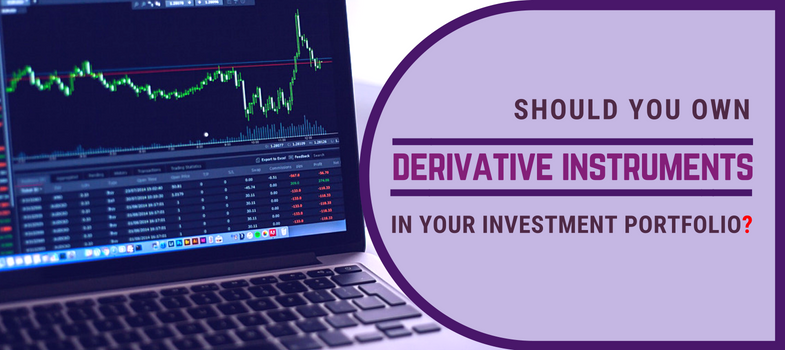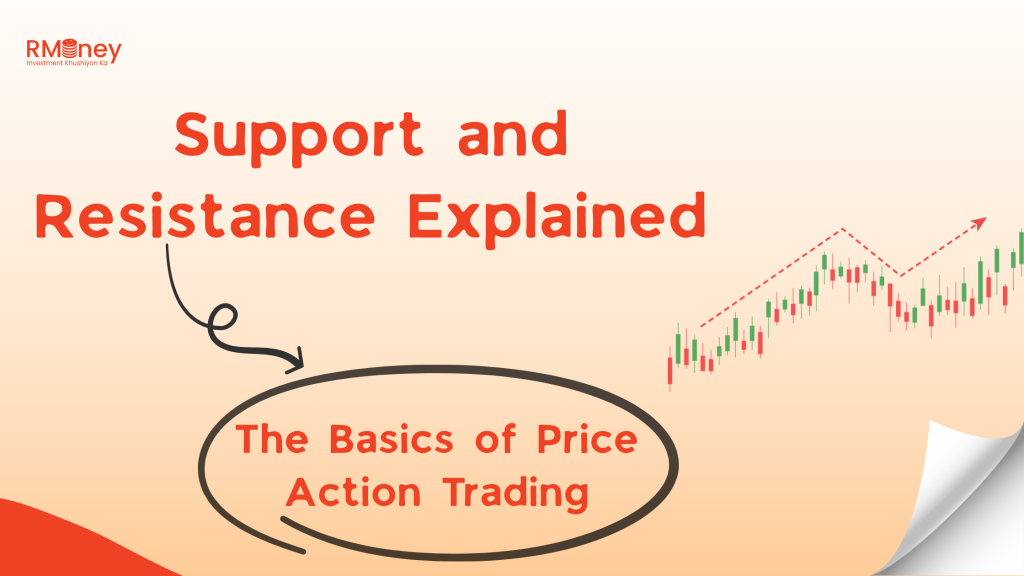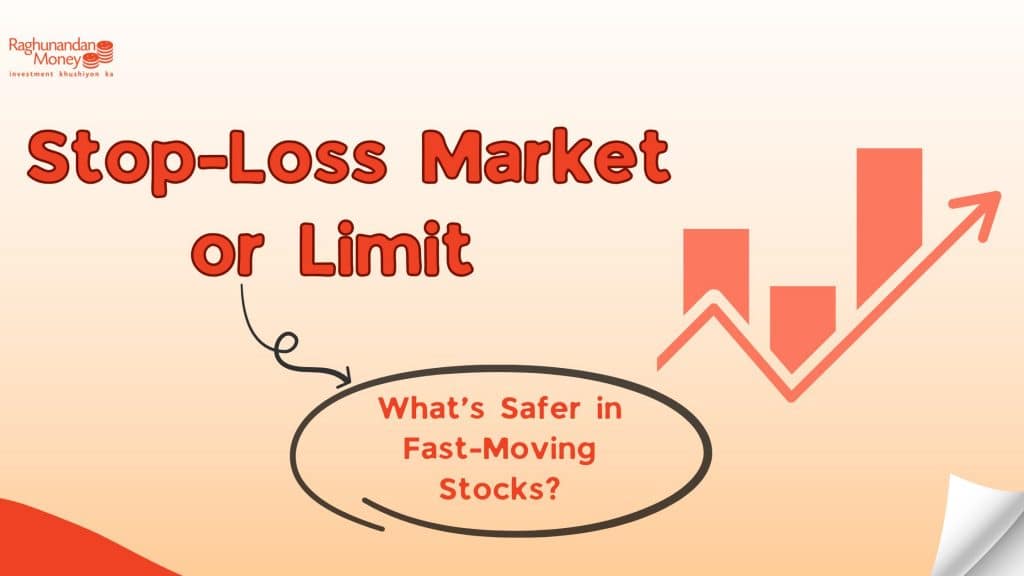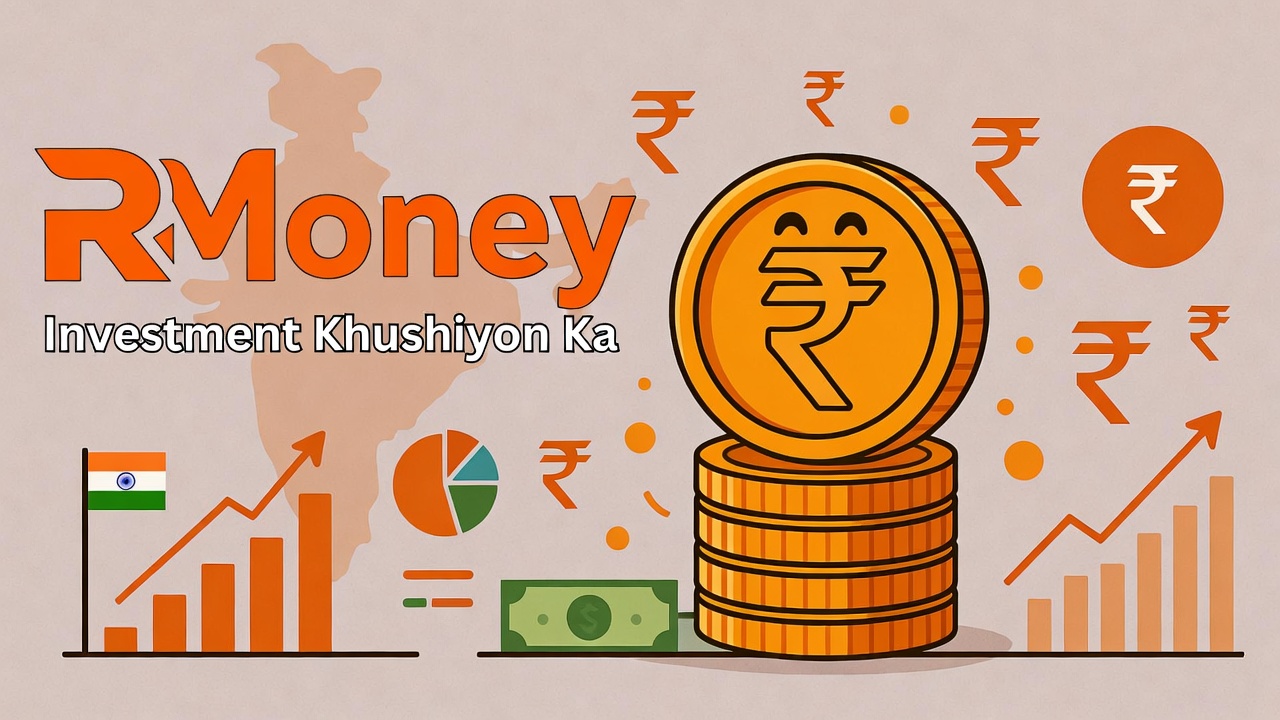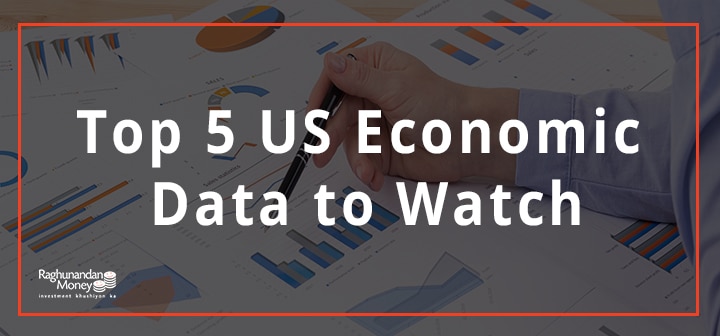Derivative instruments are tools to deal with future prospects of a financial instrument. Not all financial instruments have their derivative counterpart. However, besides mitigating future’s holding risks, one trade in derivative to speculation.
Derivative instruments are financial products. They derive their value from underlying financial assets or a group of such assets. These derivative are contracts between two or more parties. The fluctuations in the prices of underlying assets determine derivative prices.
Now the question is whether we should own derivative instruments in our investment portfolio or not? To answer this question directly, let us understand how the various category of derivative helps investments. Future, options and index future are the main categories of derivatives in the stock market. Also, they are the most traded one. So, I will focus on these instruments to gain deep insight.
General benefits from options and futures trading
Options and future trading benefits in the following ways –
1. Transfers risk to the person who accepts them
With F&O trading you can transfer the price risk. Hedging is the simplest way to do so. You have the privilege to buy and sell futures contracts and offset the risks of changing underlying market prices. Thus it assists you in reducing the risk associated with exposures in the underlying market by taking a counter-position in the futures market. So, by this counterposition, you actually transfer your risk to the counterparty. In this case, the counterparty is the exchange.
2. You can make profits with minimal risk capital
If you trade smart enough without greed and fear, there is the possibility to make a huge profit will very low capital. Future and options trading is mostly on margin money. You do not have to deposit the full value of the contract size you trade with. Rather, only a fraction of the total contract value you need to deposit as total margin and play in the future and options market. So, low capital high profitability is only possible with future and options trading.
3. The transaction cost is lower
While trading in future and options you need to pay various charges. You need to pay STT, transaction charges, SEBI charges, education cess, higher education cess, stamp duty, brokerage and GST. However, these charges are very less to the total value of the transactions. Like any other business, trading is a business too. So you need to pay charges in lieu of doing business.
4. O&f instruments provide liquidity and also enables price discovery in the underlying assets
Liquidity is another major advantage of futures and options. Most futures contracts are very deep and liquid. Not only in stocks future but also in the most commonly traded commodities, currencies and indexes. Actually, this narrows down the bid-ask spreads. Also, this reassures that you as a trader can enter and exit positions when required. However, in India, most of the options are illiquid due to low participation. Index options are exceptions. Furthermore, other options that are away from the strike price or expire deep into the future.
5. Movement of F&O instruments acts as lead economic indicators
There are two kinds of economic indicator to indicate economy progress. The leading and lagging economic indicators. Those indicators that give a sense of economic expansion or contraction or even side-ways movement of the economy is a leading indicator. While there are also some indicators that suggest for the phase of the economy when the economy is already in that particular phase. Lagging indicators are sort of confirmation for any state of the economy.
The price movement of stocks market, especially those of future and options is one of the leading indicators. Future prices are what mass traders/investors visualise over the spot prices. Further, the mass moment has more power than the individual. Thus, both of these inherent principles are intact with future and options pricing. Hence are leading economic indicator.
When you will benefit out of options trading
Dealing in options trading benefits you if you wish to –
- Deal in the market and at the same time you do not wish to hold a considerable portion of the stock, or
- Want to defend your portfolio and willing to pay some premium
What you must look before initiating futures trading
You need to analyze three aspects before entering future trading in India. They are –
1. The overall state of the market
First and foremost always take the market view for short and medium term. Then decide which side you need to trade. Either on the buy side or sell side. Then act accordingly strategizing your future trades.
2. Trading with derivatives instruments helps transfer risk
Hedging is the mechanism which allows you to transfer your risk in financial dealings. It is basically buying and selling of futures contracts of the underlying financial instruments. Hedging helps offset the risks from fluctuating underlying market prices.
Thus, it reduces the risk of exposures in the underlying. It takes a counter-position in the futures market. For instance, if you own a portfolio of stocks and you sense adverse market conditions in the near future. So, you may reduce the risk from the adverse situation that may occur in future. You can hedge your portfolio holding by creating a short position of the index future, say with the Nifty 50.
In this case, if there is a correction in the market, he can make a profit by covering your Nifty 50 short position. The profit will compensate your losses from the portfolio if any.
3. Use leverage cautiously while dealing with derivatives instruments
As an investor in the derivative instrument, you need to pay a small fraction of the total value of the contract. Technically, this small fraction of payment is called margin.
So, these margins result in leverage trading activity. This is so because you are now able to deal in the total quantity of the contract but with a relatively small amount of margin money.
Thus, leverage enables the trader to make a larger profit (or loss) with a comparatively very small amount of capital. And here is the deal. Even less amount is a big amount for retailers. And in most loss-making trades whole margin amount gets wiped out completely.
Thus, helps to lose all capital in such derivatives trading. This you must understand before you want to enter the derivatives market properly.
4. Trading index futures and its benefit
You have an option to trade in index futures also. Investing in index future is as efficient a mutual fund investments. The following are the advantages of index future trading –
- A highly liquid contract
- It provides the highest leverage among other derivative instruments for stocks market
- Requires very low initial capital as margin
- Compared to holding stocks, it has a lower risk
- You have the option to trade both sides depending upon the market overall condition, either short side as long side
- You save time as you need to study single index in place of many stocks
Before coming to the question of whether you should own some derivative instruments as a part of your investment portfolio or not, let us understand some important concepts specific to such derivative instruments.
Concepts relevant to derivative instruments
Both of the exchanges, i.e., the National Stock Exchange and the Bombay Stock Exchange have their own derivative instruments. Further, the concept of expiration day, contract cycle, and settlement of contracts are derivative instruments specific terms. Likewise in-the-money, at-the-money, and out-of-the-money are options instruments specific terms. Let us understand these terms.
1. Expiration date
All future and options contracts come with a time tag with it. TIme tag means its trading ends on a certain pre-fixed date. This day is called expiration day. Generally, all future and options expire on every last working Thursday of a month. If there is a holiday, then the expiration day is one previous working day. Recently, Bank Nifty future expiration day is changed from monthly to weekly basis.
2. Derivative contract trading cycle
Now that every derivative contract has a fixed life, let us see how much. In general future and option contracts over NSE have a maximum of 3 months of life. Such life technically is known as the trading cycle.
Thus, there is three trading cycle altogether. The near-month (one month), the next month (two months) and the far month (three months). There are some long-dated options contracts as well, especially for indexes.
The stock exchange introduces a new contract on the next trading day following the near month contract expiration. The new contract continues for the next three month period. Thus, at any point in time, there are always three active contracts.
3. Settlement of contracts
If you are holding any derivative instruments you need to exit from your holdings on before the expiration day. The process through which you wind up your future and options holding is known as the settlement of contracts.
All of the future and options contracts always settle in cash. Besides, they can settle on a daily basis or on the expiry or by exercising any of the respective contracts. Participants do not require to hold any underlying stocks to make them eligible for dealing in derivatives instruments like future and options.
One thing, you must always remember while dealing with derivative instruments. And it is either you exit from or roll over any open position as out of the money and at the money contract of the near month. This is because near month contracts expire worthless at the expiry date.
4. In-the-money options (ITM)
An in-the-money option is an option that leads to positive cash flow. However, it needs to be exercised immediately.
A Call option is in-the-money when the current price stands at a level higher than the strike price. If, however, the spot price is much higher than the strike price, a Call is said to be the deep-in-the-money option.
In the case of a Put, the put is in-the-money if the Spot price is below the strike price.
5. At-the-money-option (ATM)
An at-the-money option is an option that leads to zero cash flow. Similarly, this also needs to be exercised immediately.
An option on the index is said to be “at-the-money” when the current price equals the strike price.
6. Out-of-the-money-option (OTM)
An out-of-the-money option is an option that leads to negative cash flow. Likewise in the other two, this also needs to be exercised immediately.
A Call option is out-of-the-money when the current price stands at a level which is less than the strike price. If the current price is much lower than the strike price the call is said to be deep out-of-the-money.
In case of a Put, the Put is said to be out-of-money if the current price is above the strike price.
I think the above discussion makes the basic structure of derivative instruments and how it works very clear to us. Whether you are trader, hedger, speculator or arbitragers, you must be aware of all these facts. So now you can yourself assess whether these instruments suits your financial risk appetite or not. Merely assuming you need to pay very little margin does not guarantee for a huge profit. It’s very risky and speculative in nature. Further, it is designed in such a way that your entire margin amount may be eaten up. Thus, if you plan to play with any of the derivative instruments, make sure for the calculated risk, else no one can save you, in the case when your market prediction goes wrong.

Stock Trading Now trade in ₹9 Per Order or ₹ 999 Per Month Plans.
Future & Options Access F&O contracts with advanced tools for hedging and speculation.
Currency Trading Trade in major currency pairs and manage forex exposure efficiently.
Commodity Trading Diversify Trading with MCX & NCDEX by Trading in Gold, Silver, Base Metals, Energy, and Agri Products.
Margin Trading Funding Boost your buying power with upto 5X, Buy now Pay Later
Algo Trading Back test, Paper Trade your logic & Automate your strategies with low-latency APIs.
Trading View Leverage Trading View charts and indicators integrated into your trading platform.
Advanced Options Trading Execute multi-leg option strategies with precision and insights.
Stock Lending & Borrowing Earn passive income by lending stocks securely through SLB.
Foreign Portfolio Investment Enable NRIs and FPIs to invest in Indian markets with ease and compliance.
IPO Invest in upcoming IPOs online with real-time tracking and instant allotment updates.
Direct Mutual Funds 0% Commissions by investing in more than +3500 Direct Mutual Fund Scheme.
Corporate FDRs Earn fixed returns with low-risk investments in high-rated corporate fixed deposits.
Stocks SIPs Build long-term wealth with systematic investment plans in top-performing stocks.
Bonds & NCDs Access secure, fixed-income investments through government and corporate bond offerings.
Depository Services Safely hold and manage your securities with seamless Demat and DP services with CDSL.
Journey Tracing our growth and milestones over time.
Mission & Vision Guided by purpose, driven by long-term vision.
Why RMoney Platform Smart, reliable platform for all investors' needs.
Management Experienced leadership driving strategic financial excellence.
Credentials Certified expertise with trusted industry recognition.
Press Release Latest company news, updates, and announcements.
Testimonials Real client stories sharing their success journeys.
7 Reasons to Invest Top benefits that make investing with us smart.
SEBI Registered Research Trusted insights backed by SEBI-compliant research.
Our Technology Advanced tools enabling efficient online trading.
Calculators Access a suite of smart tools to plan trades, margins, and returns effectively.
Margin Calculator Instantly check margin requirements for intraday and delivery trades.
MTF Calculator Calculate MTF funding cost upfront to ensure full transparency before placing a trade.
Brokerage Calculator Know your exact brokerage charges before placing any trade.
Market Place Explore curated investment products and trading tools in one convenient hub.
RMoney Gyan Enhance your market knowledge with expert blogs, videos, and tutorials.
Performance Tracker Track our research performance with full transparency using our performance tracker.
Feedback Share your suggestions or concerns to help us improve your experience.
Downloads Access important forms, software, and documents in one place.
Locate Us Find the nearest RMoney branch or service center quickly.
Escalation Matrix Resolve issues faster with our structured support escalation process.
Back Office Log in to view trade reports, ledger, and portfolio statements anytime.
Account Modification Update personal or bank details linked to your trading account.
Fund Transfer Transfer funds instantly online with quick limit updation to your trading account.
Bank Details View our registered bank account details for seamless transactions by NEFT, RTGS or IMPS.
How to Apply IPO Step-by-step guide to apply for IPOs using your trading account.
RMoney Quick Mobile App Trade on-the-go with our all-in-one mobile trading app.
RMoney Quick login Quickly access your trading account through the RMoney Quick web-based trading.
RMoney Rocket Web Version Experience powerful web-based trading with advanced tools for algo traders.
RMoney Rocket Mobile Version Trade anytime, anywhere with our feature-rich mobile trading platform.
